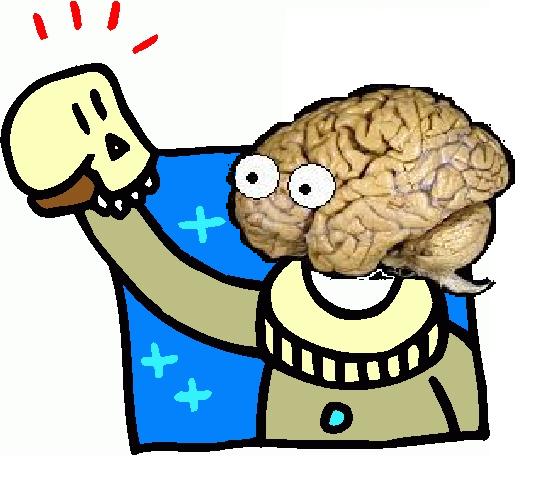Tagged: dementia
Are Men More Forgetful Than Women?
If you have ever noticed that men tend to forget things quite often, especially compared to women, you are not alone. A research team led by Professor Jostein Holmen in Norway conducted a large, longitudinal population health study called Hunt3 to reach the conclusion that men are more forgetful than women, regardless of their age. This is one of the largest health studies ever performed, with answers from over 48,000 people leading to their conclusions.
The participants were asked at the beginning of the study if they had problems remembering things, if they had problems remembering dates and names, if they had a memory of what they did one year ago, and if they could remember details about specific conversations.
The Effects of Stress on Memory Loss
 Stressed out? You may be at a higher risk for Alzheimer's disease. You're probably wondering to yourself how that is possible. Highly intelligent people who use their brains all of the time, like scientists, CEOs, and presidents, deal with stress on a day to day basis. The truth is that lack of higher education or brain activity is not the only major cause of dementia.
Stressed out? You may be at a higher risk for Alzheimer's disease. You're probably wondering to yourself how that is possible. Highly intelligent people who use their brains all of the time, like scientists, CEOs, and presidents, deal with stress on a day to day basis. The truth is that lack of higher education or brain activity is not the only major cause of dementia.
If keeping your brain active is a good way to prevent cognitive decline, then why did people such as Ronald Reagan and Norman Rockwell develop Alzheimer’s disease? The answer is stress. Recent studies have shown that people who deal with high levels of stress in their career or their family life are more likely to develop dementia. Stress cannot be said to directly cause dementia, but it is a trigger for the degenerative process in the brain.
An Argentine research team examined 118 patients with Alzheimer’s disease and 81 healthy individuals whose age, gender, and educational level were comparable to the Alzheimer's patients. Both groups were questioned about the amount of stress that they had faced in the past three years. The researchers reported that 72% of the Alzheimer’s patients admitted to coping with severe emotional stress or grief, such as the death of a loved one or financial problems. This was nearly three times as many as the control group.
Lolo, Ubongo, Cerebro, Cervello, Cerveau, Brein = BRAIN!
Know any of the above words from ubongo to brein? If so, you can (surprisingly to you of course) say BRAIN in Hawaiian, Swahili, Spanish, Italian, French, or Dutch. And if you can (read this and) fluently speak at least one of these languages, or another not shown, you are multilingual (again, SO surprisingly to you…) – and may consequently reap some benefits from this status! More
“Could I ask everyone to please take their seat? The Memory Ensemble will begin momentarily.”

If I told you that a theater company and a medical school collaborated to produce one of the best plays of the year, would you believe me?
Probably not, because this is not the case. However, this unlikely partnership of industries did produce a substantial therapeutic program for people who are currently suffering the cognitive deficits associated with dementia.
Based on the theory of cognitive reserve - or the brain’s resilience to neuropathological damage - it is widely hypothesized that creative and interactive activities, such as painting, singing, and acting, would help patients maintain their cognitive functions for as long as possible.
With this hypothesis and the guidance of the Lookingglass Theater Company, the Feinberg School of Medicine at Northwestern University formed the first-ever "Memory Ensemble." The cast included six elderly patients suffering from early stages of memory loss, a common symptom attributable to various types of dementia.
Quoted as “one of the first-of-its-kind," the directors of this production sought to design a program that would improve the quality of life for these patients by setting up a safe and supportive environment. With the serene scene set, patients were encouraged to express every emotion and/or words associated with their neurological deficits to help them alleviate any pains or questions of uncertainty accompanied by these disorders.
As a part of a seven week pilot study, the ensemble would meet and participate in various cognitive activities, including an impromptu-style of acting that actively engaged the patients both physically and mentally. As a baseline measure, metaphor-based warm-up exercises prompted the patients to choose a color that symbolizes their current emotional state. Prior to their regularly scheduled regime, the patient’s reports ranged from a happy sunny yellow to a melancholy blue. Nevertheless, after a stretching routine, body-sculpting exercises portraying various feelings, and an active discussion of the hardships involved with their disorders, all of the patients were quick to describe their emotional state at the end of the workshop as a happy yellow.
Although these patients verbally reported an improvement in their quality of life within the given time period, it was noted that this qualitative research study could not quantitatively provide evidence in support of their hypothesis. Thus, a lack of evidence from this study could be detrimental to implementing this therapeutic program in hospitals across the US simply because of the lack of funding.
Though not discussed in this article, pre- and post-study fMRI scans and intermittent neuropsychological tests could provide quantitative insight on whether or not such a therapeutic program significantly contributes to the patient’s cognitive reserve. Pre- and post-study fMRI scans of the patients performing these neuropsychological tests can be compared to control subjects, as well as across-patients and within-patients, in order to identify the statistical differences between the patterns of activity associated with each task. Other measures, such as reaction time, can also be recorded to correlate with the patients behavioral performance to provide more information and insight on whether or not this is an effective prevention program.
Despite this predicament, I must say that I am very impressed and optimistic about this new style of therapy because it helps the patient positively cope with such a disastrous and unfortunate mental disorder. In the future, I hope that quantitative measures, as discussed before, will be implemented to help facilitate and disambiguate the uncertainty pertaining to dementia-related research.
Trying Improv as Therapy for Those with Memory Loss - Chicago News Cooperative - NYTimes.com
Cognitive Reserve - Dr. Yaakov Stern (2009) - Neuropsychologia (PDF)
